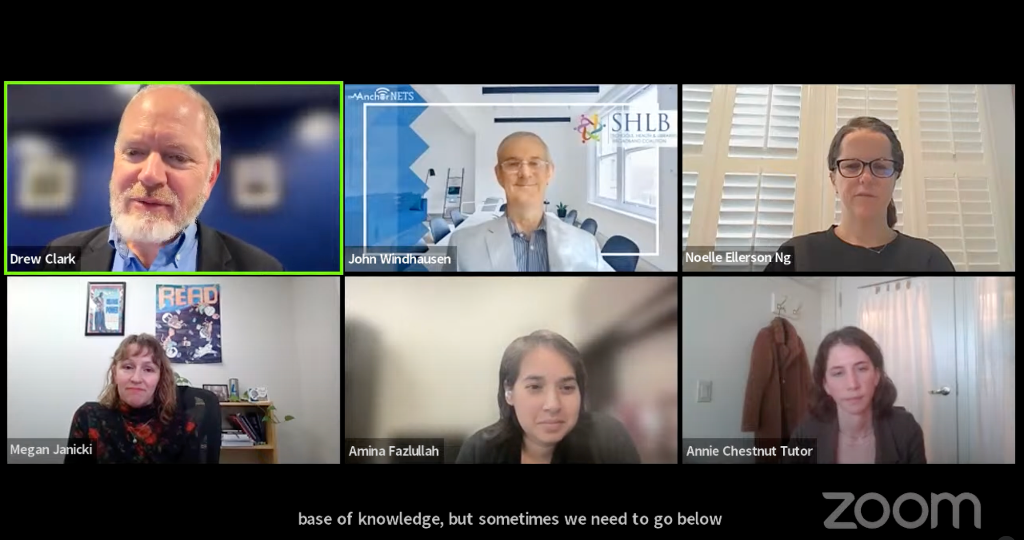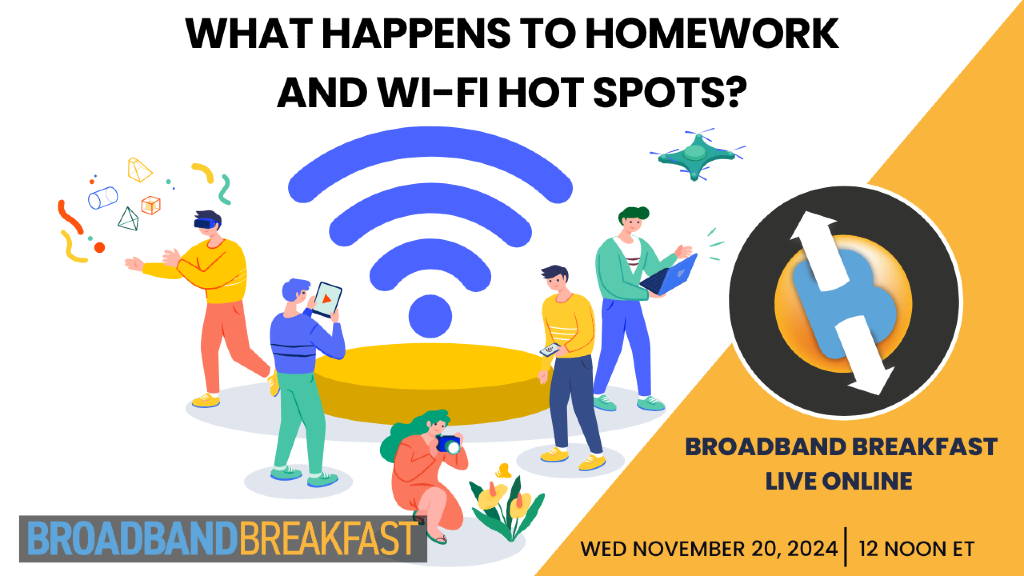FCC's Wi-Fi Hotspot Lending Program Faces Uncertain Future
Upcoming Chairman Carr, along with Commissioner Nathan Simington, previously dissented from the decision.
Broadband Breakfast

WASHINGTON, Nov. 22, 2024 - Further iterations of the Federal Communications Commission's recent decision to allow E-Rate funding for Wi-Fi hotspot lending faces an uncertain future as the agency prepares for new leadership, experts said Wednesday during a Broadband Breakfast Live Online event.
The agency moved in July to allow its E-Rate program, which provides internet discounts for schools and libraries, to fund Wi-Fi hotspots for students and library patrons to check out and use off premise. The order received strong backing from education and library organizations, for example.
“The SHLB Coalition spearheaded a lot of this work to allow the E-Rate program to fund hotspots and wireless connectivity and devices,” said John Windhausen, executive director of the Schools, Health & Libraries Broadband Coalition. “The comments that we received were overwhelmingly positive because of the urgent need to connect students and library patrons during the pandemic. Even the industry was supportive of our proposal.”
 Broadband BreakfastAmina Fazlullah
Broadband BreakfastAmina Fazlullah
Supporters are still working to promote modifications to the program such as expanding eligible technologies beyond traditional Wi-Fi hotspots.
However, the Heritage Foundation and others have questioned the FCC's authority to implement the program. "Section 254 of the Communications Act says that the E-Rate funds may only be used for telecommunications and information services in school classrooms and libraries, not off-site purposes," said Annie Chestnut Tutor, policy analyst at the Heritage Foundation's Tech Policy Center.
Chestnut Tutor also warned of increased screen time and its negative impacts on children, such as sleep deprivation and anxiety, adding that this expansion risks undermining “parental and teacher oversight.”
The program's fate could hinge on the upcoming leadership transition. President-elect Trump has named current FCC Commissioner Brendan Carr as the next chairman. Carr, along with Republican commissioner Nathan Simington, previously dissented from the hotspot lending decision, citing concerns over budget limits and consumer costs.
Noelle Ellerson Ng, associate executive director of advocacy at AASA, the School Superintendents Association, noted the program's timing could complicate any immediate changes.
"I'm not sure that this FCC or even Congress wants to disrupt applications that have been submitted in good faith with school budget dollars,” she said, suggesting any major changes would likely come later in the calendar year.
Despite the uncertain future under new FCC leadership, advocates emphasized the vital importance of maintaining the program.
"Nearly 50% of public libraries are lending Wi-Fi hotspots currently," said Megan Janicki, deputy director of strategic initiative at the American Library Association, noting that libraries have embraced hotspot lending as a crucial service.
Common Sense Media, which researches technology's impact on education, emphasized the persistent nature of the homework gap. "We found that there were about 16 million kids in a persistent homework gap... they didn't have access to the connectivity or the devices that they needed," said Amina Fazlullah, the organization's head of tech policy advocacy.
Windhausen - who pointed out that funds are already being disbursed under the order - suggested working with Carr to "recognize the value of this program" and make adjustments to address concerns, rather than seeking an outright reversal.
The FCC is expected to continue processing applications for the next year under current rules, though longer-term changes may come once the commission has a Republican majority.

November 20, 2024 - What Happens to Homework and Wi-Fi Hot Spots?
In July 2024, the FCC voted to expand its E-rate Funding program, which has traditionally subsidized internet access for eligible schools and libraries, to off-premise Wi-Fi hotspots. The commission has been supportive, but partisan divisions exist on the FCC's legal authority to extend E-rate funding for Wi-Fi beyond the boundaries of schools and libraries, warning that this expansion could push legal boundaries.
Some educators and tech advocates are calling on the FCC to broaden the scope beyond Wi-Fi hotspots. Others are focused on accessibility and flexibility, arguing against the FCC’s current rule limiting hotspot lending to a 21-day period. What happens next?
Panelists
- Amina Fazlullah, Head of Tech Policy Advocacy, Common Sense Media
- Noelle Ellerson Ng, Associate Executive Director, Advocacy & Governance, AASA, The School Superintendents Association
- John Windhausen Jr., Executive Director, SHLB Coalition
- Megan Janicki, Deputy Director, Strategic Initiative, American Library Association
- Annie Chestnut Tutor, Policy Analyst, Heritage Foundation’s Tech Policy Center
- Drew Clark (moderator), CEO and Publisher, Broadband Breakfast










Member discussion